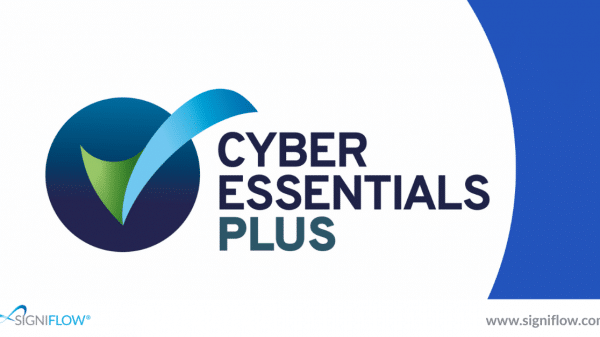Digital transformation involves utilising digital technologies to create new or modify existing business processes, culture, and customer experiences to adapt to evolving business and market needs. This rethinking of business in the digital era is what digital transformation is all about.
Digital transformation goes beyond traditional functions such as sales, marketing, and customer service. Instead, digital transformation revolves around how you perceive and interact with customers.
For small businesses that are just starting out, there’s no need to establish and then later transform business processes. You can future-proof your organisation right from the start with digital transformation. Building a modern business using sticky notes and handwritten ledgers is simply not sustainable. Thinking, planning, and constructing digitally positions you to be adaptable, versatile, and prepared for expansion.
As many companies embark on digital transformation, they are pausing to question whether they are truly on the right track. Keep reading for the answers.
Why is digital transformation important?
Digital transformation has become necessary for all businesses regardless of industry, to ensure survival and growth. Yet, many companies hesitate to take the leap, as the idea of a digital transformation is rather daunting. From concerns about security and compliance to the challenge of adapting to new technologies, the fear surrounding digital transformation is very real. But with the right tools, like digital signing solutions, digital transformation doesn’t have to be scary — it can be empowering.
What’s the difference between digitisation, digitalisation, and digital transformation?
- Digitisation is the process of converting analogue records into digital files, making it easier to store, find, and share information. Originally, businesses used paper documents for record-keeping, but with computers, these documents became digitised, improving efficiency without drastically changing existing processes.
- Digitalisation uses digitised data to streamline and enhance traditional workflows. It makes tasks faster and more efficient without fundamentally altering how businesses operate. For example, customer service became more efficient by accessing data quickly on a computer rather than manually searching through paper records.
- Digital transformation is a deeper change where businesses reimagine their processes, improving customer interactions and decision-making through new technologies. It involves leveraging digital tools to create new business models or improve customer experience, such as Netflix transforming from mail orders to a leading streaming platform.
Digital transformation doesn’t have to be scary, here’s why:
The Fear of the Unknown in Digital Transformation
One of the biggest barriers to digital transformation is the fear of the unknown. Businesses tend to stick to familiar paper-based processes, even when they are outdated and inefficient. Yet, clinging to these old methods can result in even scarier risks — such as data breaches, compliance failures, and missed opportunities for innovation and growth.
Digital transformation may seem intimidating, but that fear can be alleviated with trusted digital solutions.
Is Digital Transformation Secure?
Security is often the number one concern when businesses consider digital transformation. Decision-makers worry about protecting sensitive information and whether digital platforms can be trusted. Secure digital signing platforms put these concerns to rest. With state-of-the-art encryption and tamper-proof technology, your documents are protected and legally binding. Digital transformation doesn’t have to be scary when security is built into every step.
How Digital Transformation Solves Compliance Nightmares
Compliance is another significant challenge in the digital transformation journey. Industries like finance, healthcare, and real estate operate under strict regulations, and one misstep can lead to costly penalties. Digital transformation simplifies compliance by automating and streamlining these processes, ensuring businesses meet every legal requirement effortlessly.
Adapting to New Technology in Digital Transformation
Adapting to new technologies is the most intimidating part of a digital transformation. There’s a fear that the learning curve will be too steep, causing disruption instead of progress. However, adopting digital solutions is a lot easier than it might sound.
Our user-friendly design, with industry-specific customisation and dedicated support, ensures that your transition to digital is smooth and stress-free.
Conquer Your Fears and Embrace Digital Transformation
At its core, the biggest fear in digital transformation is not the technology itself but the change it brings. However, avoiding digital transformation is the bigger risk, leaving businesses vulnerable to inefficiencies, missed opportunities, and security threats. By embracing solutions like SigniFlow, you protect your business and position it for success in the digital age.
Don’t let fear keep you from a brighter, more efficient future. With SigniFlow, digital transformation doesn’t have to be scary—it’s a smart, secure, and empowering choice.
Ready to take a leap on this exciting journey? Learn more here.





























